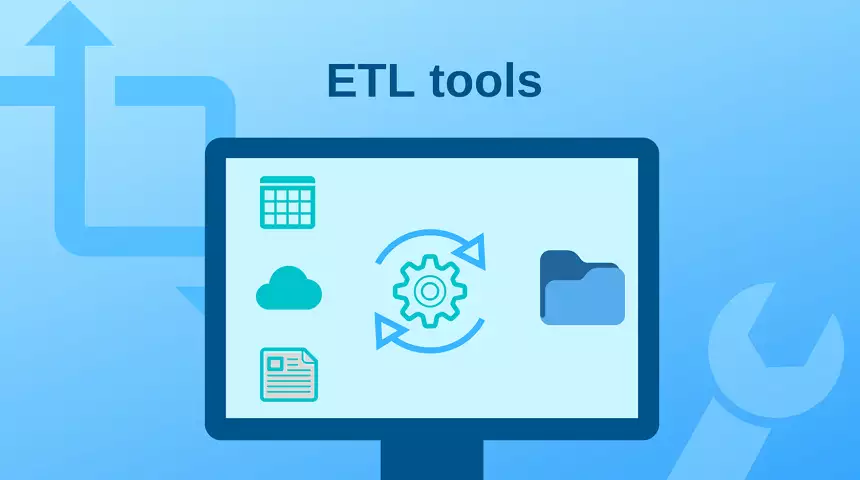There are several Python-based open-source ETL (Extract, Transform, Load) tools available that can help with data integration, data transformation, and data loading tasks. Here are some popular Python-based ETL tools:
- Apache Airflow:
Apache Airflow is a platform used to programmatically schedule and manage workflows. While not specifically an ETL tool, it can be used effectively for ETL processes. Airflow allows you to define complex data pipelines as code using Python, enabling you to schedule and execute ETL tasks, define dependencies, and monitor job execution. It supports a wide range of data sources, transformations, and integrations. - Apache NiFi:
Apache NiFi is a powerful data integration and ETL tool that provides a visual interface for designing data flows. It allows users to create data pipelines by connecting pre-built processors, which handle data ingestion, transformation, routing, and loading. NiFi supports various data formats and protocols, including batch and real-time processing, and provides extensive data provenance and monitoring capabilities. - Bonobo:
Bonobo is a lightweight ETL framework for Python that focuses on simplicity and ease of use. It provides a simple and intuitive API for defining ETL pipelines as Python generators or functions. Bonobo supports parallel execution and offers built-in transformation and loading capabilities. It integrates well with Python’s ecosystem and can leverage existing Python libraries for data processing. - Petl:
Petl (Python Extract Transform Load) is a lightweight library for data extraction, transformation, and loading. It provides a simple and expressive API for common ETL tasks and supports various data sources and formats. Petl enables users to perform filtering, aggregations, joins, and other transformations on data sets. It also offers easy integration with other Python libraries such as pandas and SQLAlchemy. - Singer:
Singer is an open-source project that provides a standard framework for building ETL pipelines in Python. It follows a “tap and target” approach, where “taps” extract data from a source system, and “targets” load data into a destination system. Singer taps and targets are built as separate components that can be combined to create data pipelines. Singer also provides a set of pre-built taps and targets for various popular data sources and destinations. - PySpark (Apache Spark with Python):
PySpark is the Python API for Apache Spark, a powerful data processing framework. While not exclusively an ETL tool, PySpark offers extensive capabilities for data extraction, transformation, and loading. It supports distributed computing and can handle large-scale data processing. PySpark provides a high-level API and supports SQL, DataFrame, and streaming operations, making it suitable for ETL tasks.
These Python-based ETL tools offer flexibility, scalability, and extensibility for handling diverse data integration and transformation requirements. Each tool has its own features, strengths, and use cases, so it’s essential to consider your specific needs when selecting the appropriate ETL tool for your project.
Certainly! Let’s dive into Apache Airflow in more detail:
Apache Airflow is a popular open-source platform used to programmatically schedule, monitor, and manage workflows. It allows you to define, schedule, and execute complex data pipelines as code using Python. While Airflow is not primarily built for ETL tasks, it provides a flexible framework that can be effectively used for ETL processes.
Here are some key aspects of Apache Airflow:
- Directed Acyclic Graphs (DAGs):
In Airflow, workflows are represented as Directed Acyclic Graphs (DAGs). A DAG consists of tasks and their dependencies, where each task represents a specific unit of work. Tasks are defined as Python functions or as instances of pre-built operators provided by Airflow. - Scheduling and Execution:
Airflow allows you to schedule tasks based on various time intervals, such as daily, hourly, or custom schedules. You can specify when tasks should run and their dependencies within the DAG. Airflow’s scheduler ensures that tasks are executed in the defined order while handling dependencies and parallelism. - Operators and Tasks:
Airflow provides a wide range of operators, which are pre-built components that represent individual tasks within a workflow. These operators cover a broad spectrum of functionalities, including data extraction, transformation, loading, and more. Some commonly used operators for ETL tasks include PythonOperator, BashOperator, SQLAlchmeyOperator, and more. - Connections and Hooks:
Airflow allows you to define connections to external systems such as databases, APIs, or cloud services. Connections store connection details like host, port, username, password, etc., which can be securely referenced in your workflow tasks. Hooks in Airflow provide an interface to interact with these external systems and perform actions like data extraction or loading. - Monitoring and Alerting:
Airflow provides a web-based UI that allows you to monitor the status and progress of your workflows, tasks, and their dependencies. You can view logs, track task execution history, and gain insights into workflow performance. Airflow also supports alerting and notifications, allowing you to set up email alerts or integrate with external systems for alerts. - Extensibility and Integration:
Airflow is highly extensible and can be integrated with other tools and frameworks. It provides an API for creating custom operators, sensors, and hooks. Airflow also supports integration with various external systems, including databases, cloud platforms, message queues, and more. Additionally, it has a plugin architecture that allows you to extend its functionalities through custom plugins.
Apache Airflow’s flexibility, scalability, and extensive community support make it a powerful tool for managing and orchestrating ETL workflows. Its Python-centric approach allows developers to leverage the rich ecosystem of Python libraries and frameworks. With Airflow, you can define complex ETL pipelines, handle dependencies, schedule jobs, and monitor workflows efficiently.





